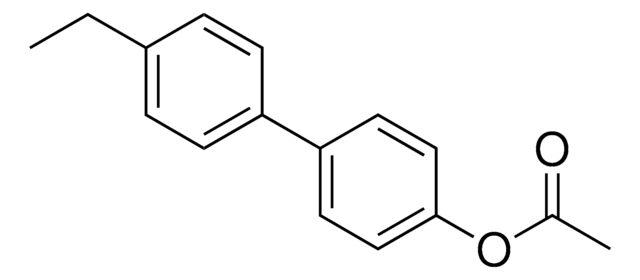196487
4-Biphenylacetic acid
98%
About This Item
Productos recomendados
Quality Level
assay
98%
mp
159-160 °C (lit.)
solubility
DMSO: soluble 50 mg/mL, clear, colorless to yellow
SMILES string
OC(=O)Cc1ccc(cc1)-c2ccccc2
InChI
1S/C14H12O2/c15-14(16)10-11-6-8-13(9-7-11)12-4-2-1-3-5-12/h1-9H,10H2,(H,15,16)
InChI key
QRZAKQDHEVVFRX-UHFFFAOYSA-N
Gene Information
human ... BAD(572)
¿Está buscando productos similares? Visita Guía de comparación de productos
General description
Application
signalword
Danger
Hazard Classifications
Acute Tox. 3 Inhalation - Acute Tox. 3 Oral - Eye Irrit. 2 - Skin Irrit. 2 - STOT SE 3
target_organs
Respiratory system
Storage Class
6.1C - Combustible acute toxic Cat.3 / toxic compounds or compounds which causing chronic effects
wgk_germany
WGK 3
flash_point_f
Not applicable
flash_point_c
Not applicable
ppe
Eyeshields, Faceshields, Gloves, type P2 (EN 143) respirator cartridges
Elija entre una de las versiones más recientes:
¿Ya tiene este producto?
Encuentre la documentación para los productos que ha comprado recientemente en la Biblioteca de documentos.
Nuestro equipo de científicos tiene experiencia en todas las áreas de investigación: Ciencias de la vida, Ciencia de los materiales, Síntesis química, Cromatografía, Analítica y muchas otras.
Póngase en contacto con el Servicio técnico







![2-[2-(2-Chloroethoxy)ethoxy]ethanol 96%](/deepweb/assets/sigmaaldrich/product/structures/902/295/ff6d7bb1-a7e0-4582-86e1-819084626e67/640/ff6d7bb1-a7e0-4582-86e1-819084626e67.png)

